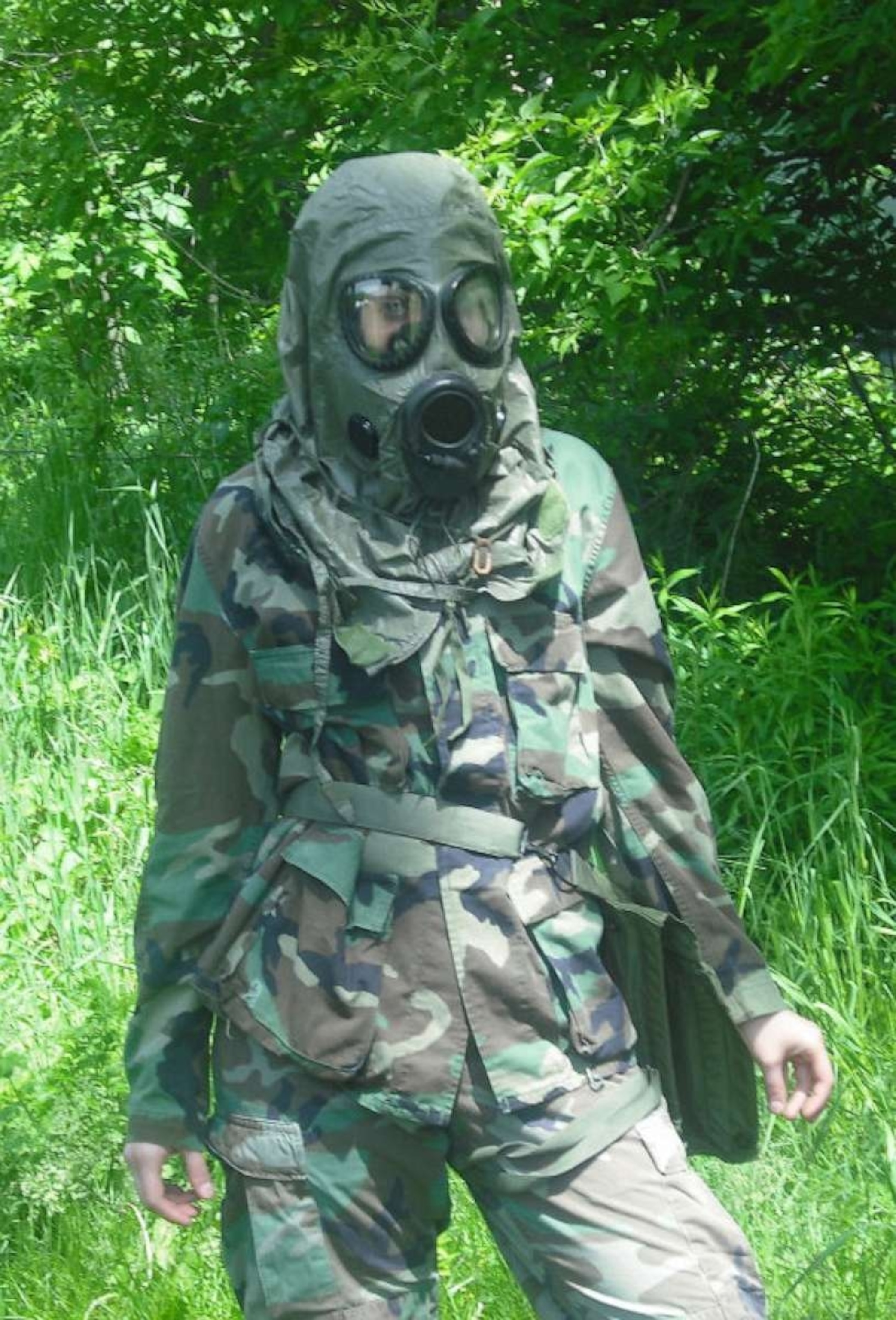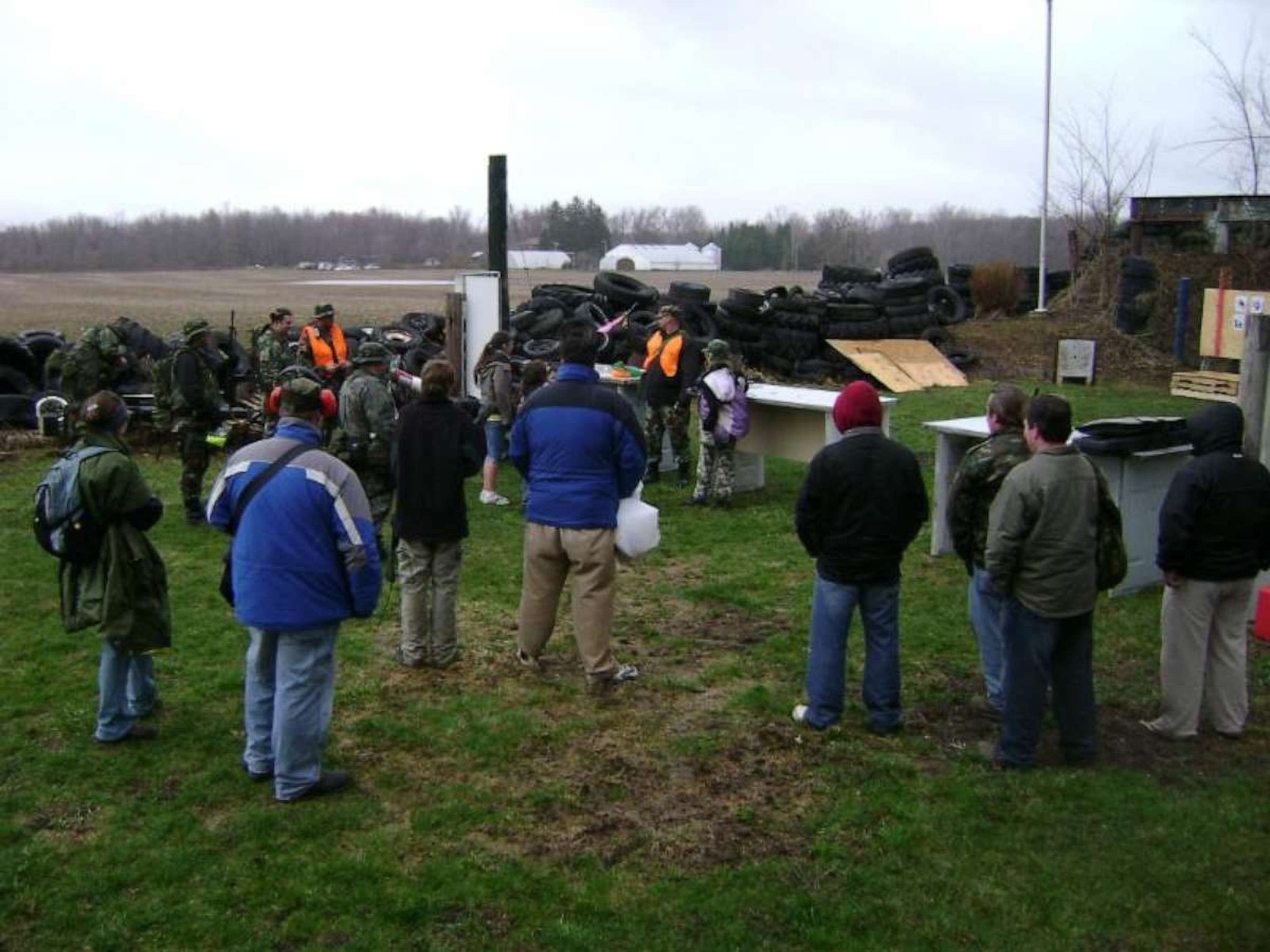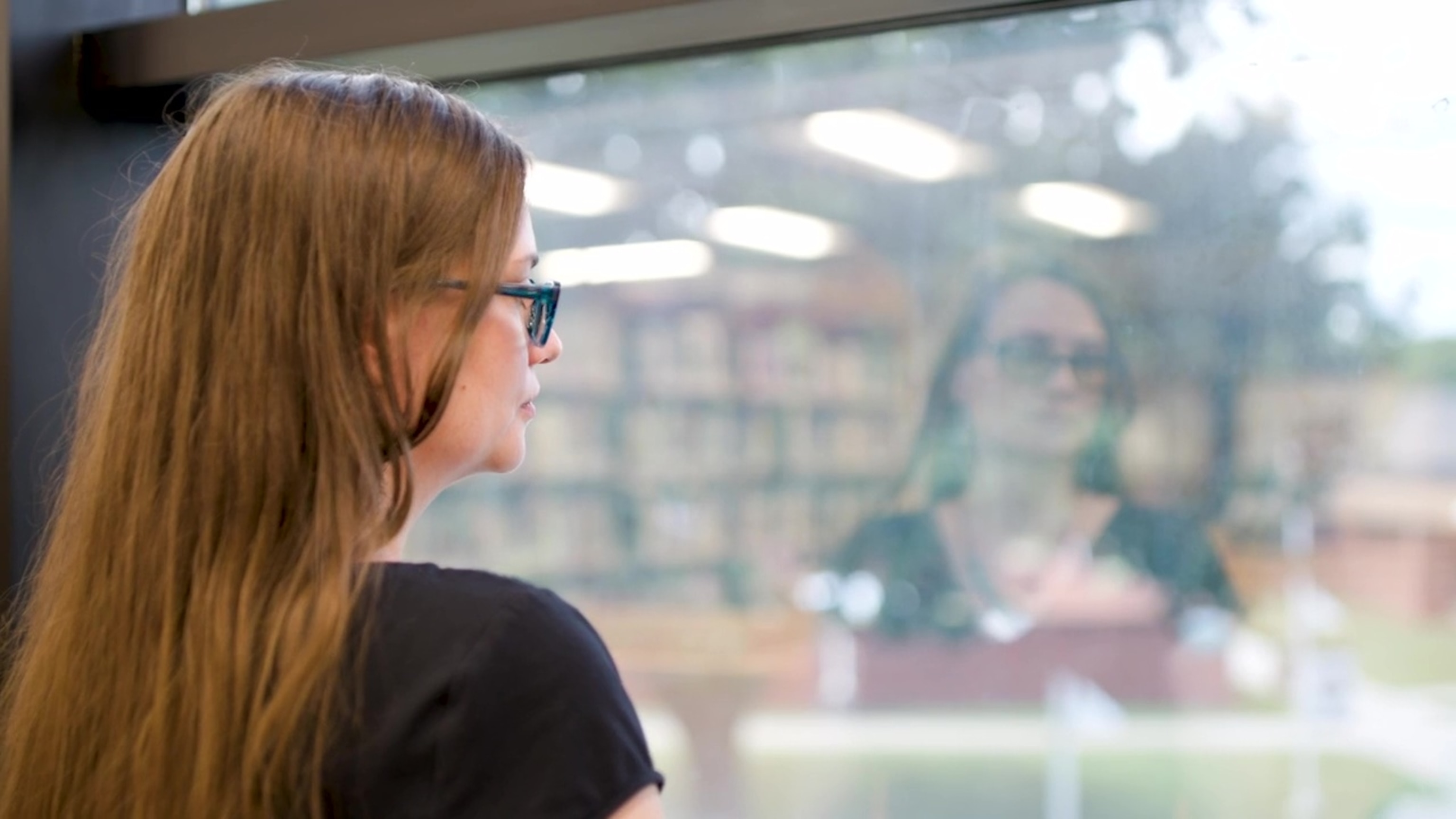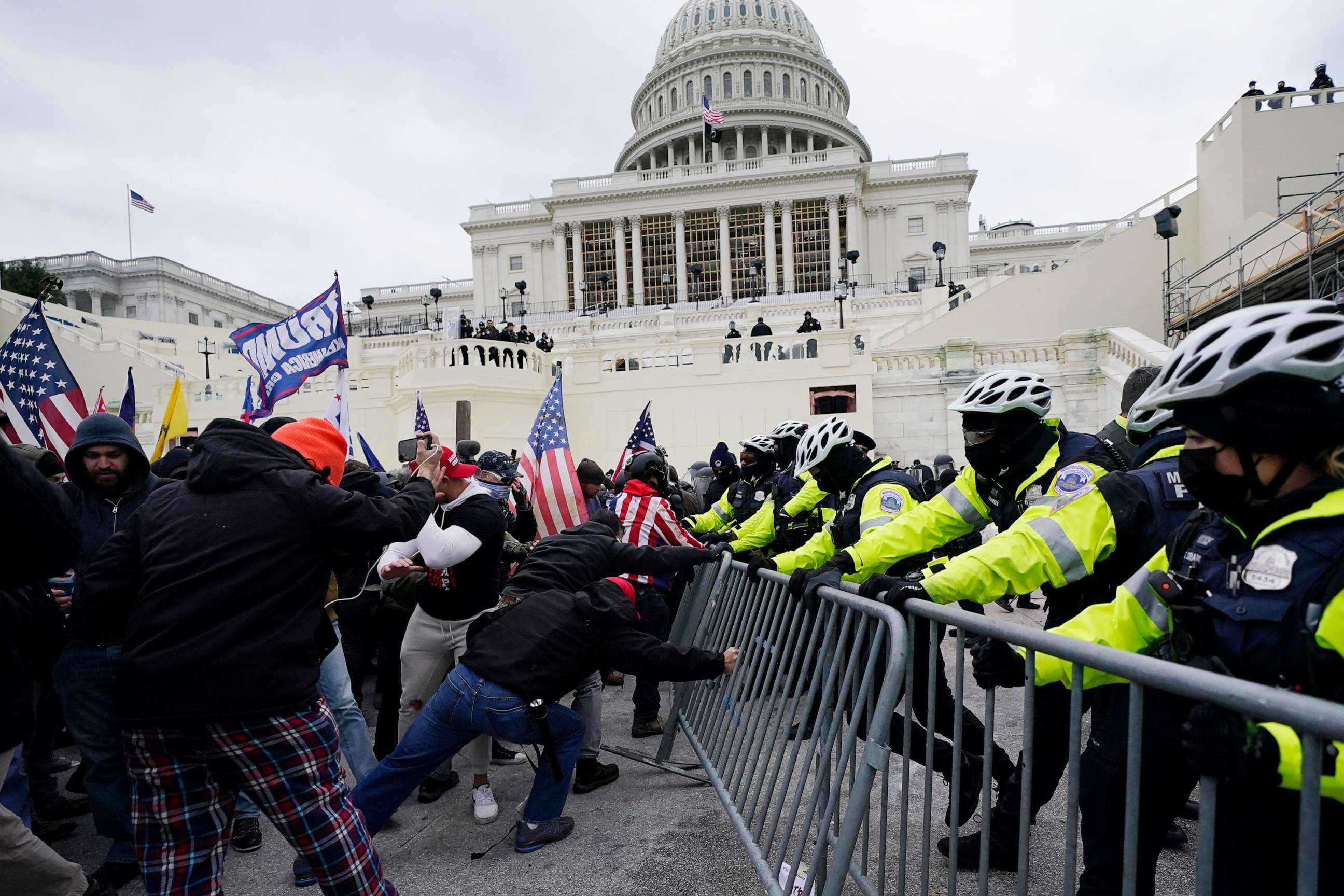How has domestic extremism changed 2 years after Jan. 6
"I don't think that Jan. 6 is the end of the story."
As the nation marks the second anniversary of the Jan. 6 insurrection at the U.S. Capitol, an expert on domestic terrorism is sounding the alarm of her concerns about future politically motivated attacks.
Amy Cooter, a senior research fellow at the Center on Terrorism, Extremism, and Counterterrorism at Middlebury College, told ABC News that while not everyone involved in the attack was officially part of a militia or right-wing group, many shared common beliefs with those militant groups. Cooter said she was concerned those individuals could be recruited to join right-wing groups and can be easy to recruit.
"I don't think that Jan. 6 is the end of the story. I'm quite concerned about the activities that we'll see headed into the next presidential election cycle in particular," Cooter told ABC News.
The Southern Poverty Law Center characterizes militia groups "by their obsession with FTX’s (field training exercises), guns, uniforms typically resembling those worn in the armed forces and a warped interpretation of the Second Amendment."
Cooter has done extensive research on extremist groups and even spent three years embedded in Michigan militia groups as a graduate student, observing how they recruited and trained people.

"I went to field days, training exercises, their public meetings and other events, starting in about 2008," she said.
One major takeaway from her experience, she said, is that despite holding what some may think are extremist views on politics and current events, many of the militia members she met blend into society like everyday people.
"The reality is many people who are in militias are very normal people, people who have jobs who have families who if you met them on the street, you might not ever guess they were actually a militia member," Cooter said.

Cooter said that the inconspicuousness of militias is troubling, possibly leading to a rise in such groups over the years.
Around 2008, militia membership dramatically increased amidst economic concerns and President Barack Obama's election win, according to non-profits that track extremist activity.
There were 50 active militias in 2007, but By late 2009, there were more than 200, according to the Anti-Defamation League.

While militia growth slowed in the years after the 2008 surge, experts saw another spike after the 2016 presidential election.
In 2017, the number of armed militia groups rose 65% from 165 chapters to 273 chapters, according to the Southern Poverty Law Center.
Cooter said that the second surge was different, because militia involvement historically declined during Republican administrations. However, she said that during former President Donald Trump's administration, there was more fervor for those militias that in part was fueled by the former president's rhetoric.
"Instead of making them feel like their concerns about the economy or about immigration were taken care of, [Trump] made them feel like those concerns were legitimate and getting bigger," she said.

Cooter explained that militias have not only become more vocal online, but more aggressive in real life, as when some gathered during a rally in Charlottesville, Virginia, in 2017.
She said the Jan. 6 insurrection came as little surprise to people who have been observing extremism in the country as it was widely discussed on social media sites like Parlor and Telegram. Some militias and right-wing groups, like the Proud Boys, were active in these channels and helped spur others to take part in the rally and later the attack on the Capitol by promoting lies about the election.
"It's important to recognize that these groups are complex," she said.
An assessment report submitted by the FBI and the Department of Homeland Security to Congress in October found that the threat from "militia violent extremists" increased in 2020 and was likely to be "elevated throughout 2021 because of contentious sociopolitical factors that motivate them to commit violence."
The assessment also stated, "In FY 2020, the FBI, often in coordination with partner agencies, arrested approximately 180 [domestic terror] subjects. In FY 2021, the FBI, often in coordination with partner agencies, arrested approximately 800 [domestic terror] subjects."
Although social media sites like Facebook have taken action to ban and restrict anti-government groups from operating on their platforms, militia groups have used other online platforms and in some cases gather in person to conduct their activities, according to Cooter. This has made it harder to track the groups, she said.

"We know as of right now, that our best estimates of people who were involved on Jan. 6, the vast majority of folks were not actually formally affiliated with a militia or some other kind of group," she said. "So we really need to pay attention to...how that ideology does map onto people we think of as being more normal."
ABC News' Jack Date contributed to this report.



